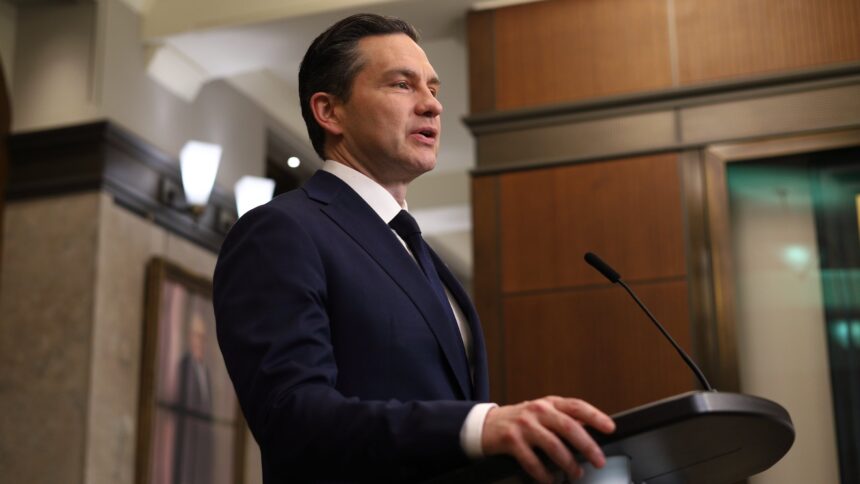The political temperature in Ottawa soared yesterday as Finance Minister Michael Carney unveiled a controversial infrastructure acceleration strategy that immediately drew sharp criticism from opposition parties. The plan, which aims to slash regulatory timelines for major projects by up to 60%, has become the latest flashpoint in Canada’s increasingly polarized debate over economic development and environmental protection.
“We cannot afford to wait a decade for critical infrastructure that Canadians need today,” Carney declared during a packed press conference at the Ministry of Finance. “This initiative will create jobs, boost productivity, and ensure Canada remains competitive globally while maintaining essential environmental safeguards.”
The proposed legislation would establish a new federal authority with expanded powers to override provincial objections and fast-track approvals for projects deemed “nationally significant”—including transportation networks, energy corridors, and communications infrastructure. The plan targets what Carney described as “bureaucratic gridlock” that has historically delayed major Canadian infrastructure projects by an average of 7.3 years compared to international counterparts.
However, NDP Leader Jagmeet Singh characterized the initiative as “a dangerous gift to corporate interests” during a fiery response in Question Period. “Once again, the government is prioritizing profit over people and planet,” Singh argued, pointing to provisions that would limit public consultation periods and narrow the scope of environmental assessments.
Green Party representatives echoed these concerns, with parliamentary leader Elizabeth May warning that the legislation represents “a fundamental dismantling of environmental protections that Canadians have fought decades to establish.” May referenced several controversial pipeline and mining projects that could potentially benefit from the expedited process.
Industry groups and business leaders have largely rallied behind Carney’s proposal. The Canadian Chamber of Commerce issued a statement calling the initiative “a long-overdue modernization of Canada’s infrastructure approval system” that could unlock an estimated $78 billion in stalled investments.
The political battle lines extend beyond Parliament Hill, with provincial reactions splitting along predictable fault lines. Quebec Premier François Legault denounced the plan as “an unconstitutional intrusion into provincial jurisdiction,” while Alberta’s government expressed strong support for measures that could accelerate energy infrastructure development.
The legislation comes at a critical juncture for Canada’s economy, which continues to face productivity challenges and increasing global competition. A recent report from the C.D. Howe Institute found that regulatory delays cost Canadian taxpayers approximately $23 billion annually through inflation of construction costs and deferred economic benefits.
Environmental legal experts have raised significant constitutional questions about the proposal. Janet Williams, professor of environmental law at the University of British Columbia, noted that “the courts have consistently upheld the requirement for meaningful consultation with Indigenous communities—something that cannot be properly accomplished under severely compressed timelines.”
As the debate intensifies, the political consequences for the Liberal government remain uncertain. Recent polling from Abacus Data suggests Canadians are deeply divided on infrastructure development, with 48% supporting accelerated approvals while 45% express concern about potential environmental impacts.
The controversial legislation now moves to committee review, where opposition parties have promised intense scrutiny and extensive amendments. As Canada navigates this contentious balance between economic imperatives and environmental stewardship, one question remains central to the national conversation: Can a democratic society meaningfully reconcile the urgent need for infrastructure modernization with the equally pressing demands of environmental protection and Indigenous rights?










